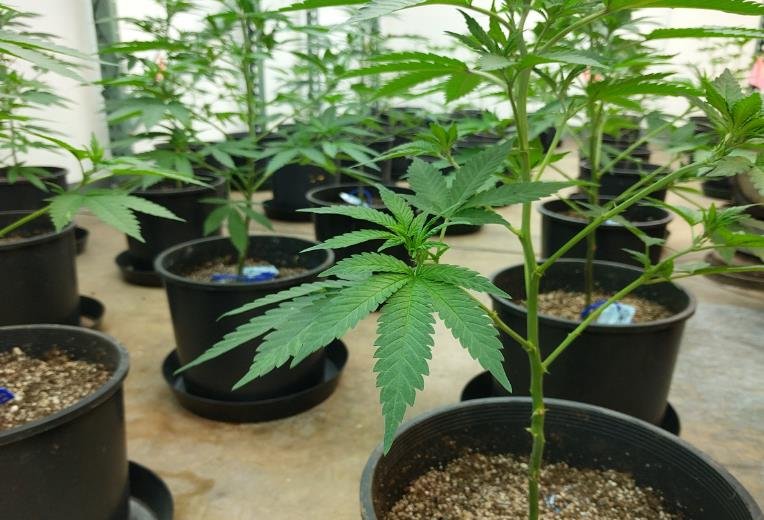A group of veterans and advocates for medical cannabis are holding a rally on Monday, March 11, at the Louisiana Capitol in Baton Rouge. They are supporting House Bill 707, which would allow individuals to grow a limited amount of cannabis at home for personal use. The bill is sponsored by Rep. Candace Newell, a Democrat from New Orleans.
Many veterans suffer from service-related disabilities, such as chronic pain, post-traumatic stress disorder (PTSD), anxiety, and depression. They rely on medical cannabis as a natural and effective alternative to opioids and other prescription drugs, which can have harmful side effects and addictive potential.

However, accessing medical cannabis in Louisiana is not easy or affordable for many veterans. The state has a restrictive medical cannabis program, which only allows nine dispensaries to operate and limits the types of products and conditions that qualify for treatment. The prices of medical cannabis products are also high, ranging from $90 to $200 per ounce.
That is why some veterans are advocating for the right to grow their own cannabis at home, which would provide them with more options, control, and savings. Tony Landry, a Navy veteran and the founder of Louisiana Veterans for Medical Cannabis, said that homegrown cannabis would allow veterans to choose the strains that work best for their individual needs, as well as to infuse them into edibles, which are not available at the dispensaries.
Landry also said that homegrown cannabis would help veterans avoid opioids, which are widely prescribed and often abused. He said that homegrown cannabis would save lives by helping people avoid opiates.
How House Bill 707 Would Work
House Bill 707, also known as the Personal Use of Marijuana Act, would allow individuals who have a medical recommendation for cannabis to grow up to six plants individually or 12 plants per household. They would also need to obtain a yearly permit that costs $75 and follow certain rules and regulations, such as keeping the plants in a secure and enclosed area, not selling or distributing the cannabis, and not driving under the influence of cannabis.
The bill would also reduce the penalties for possession of small amounts of cannabis for personal use. Currently, possession of up to 14 grams of cannabis is punishable by up to 15 days in jail and a $300 fine. Under the bill, possession of up to 28 grams of cannabis would be punishable by a $100 civil fine and no jail time.
The bill would not legalize recreational use of cannabis, nor would it affect the existing medical cannabis program. It would only apply to individuals who have a valid medical recommendation for cannabis and who want to grow their own supply for personal use.
The Challenges and Opportunities of Homegrown Cannabis
Homegrown cannabis is not without its challenges, however. Some of the main challenges are:
- Legal and Regulatory Barriers: Homegrown cannabis is still illegal under federal law, which means that individuals who grow their own cannabis could face federal prosecution and lose their benefits, such as veterans’ pensions and health care. Moreover, homegrown cannabis is not regulated or tested by the state, which means that individuals who grow their own cannabis could face quality and safety issues, such as mold, pesticides, and contaminants.
- Lack of Education and Support: Homegrown cannabis requires knowledge and skills, such as horticulture, genetics, pest management, and extraction. However, not everyone has the resources or the access to learn how to grow cannabis properly and safely. Additionally, homegrown cannabis may not have the same level of support and guidance from medical professionals and dispensary staff, who can help patients with dosing, administration, and monitoring of their cannabis treatment.
- Stigma and Opposition: Homegrown cannabis still faces stigma and opposition from some segments of society, who may view it as a gateway to recreational use or abuse of cannabis. Some may also argue that homegrown cannabis would undermine the existing medical cannabis program, which is regulated and taxed by the state. Furthermore, some may have moral or religious objections to cannabis use, regardless of its medical benefits.
Despite these challenges, homegrown cannabis also offers many opportunities for improvement and empowerment. Some of the main opportunities are:
- Increased Access and Affordability: Homegrown cannabis would provide more access and affordability for veterans and other patients who need medical cannabis, especially in rural areas where dispensaries are scarce or far away. Homegrown cannabis would also reduce the costs of medical cannabis, which can be prohibitive for some patients who have limited income or insurance coverage.
- Personalized and Holistic Medicine: Homegrown cannabis would allow veterans and other patients to personalize and customize their cannabis treatment, by choosing the strains, methods, and doses that suit their individual needs and preferences. Homegrown cannabis would also promote a holistic approach to medicine, by integrating cannabis with other natural and complementary therapies, such as gardening, cooking, and meditation.
- Advocacy and Education: Homegrown cannabis would serve as a platform for advocacy and education, not only for veterans and patients, but also for the general public. Homegrown cannabis would help dispel myths and stereotypes about cannabis, as well as inform and educate people about the benefits and risks of cannabis. Homegrown cannabis would also foster a sense of community and solidarity among cannabis growers and users, who can share their experiences and support each other.
Homegrown cannabis is a vital and valuable option for veterans and other patients who rely on medical cannabis for their health and well-being. Homegrown cannabis would provide them with more access, affordability, and autonomy in managing their cannabis treatment. Homegrown cannabis would also benefit the state and society at large, by reducing the harms of opioids, promoting innovation and research, and raising public awareness and acceptance of cannabis.
Maria Garcia is an award-winning author who excels in creating engaging cannabis-centric articles that captivate audiences. Her versatile writing style allows her to cover a wide range of topics within the cannabis space, from advocacy and social justice to product reviews and lifestyle features. Maria’s dedication to promoting education and awareness about cannabis shines through in her thoughtfully curated content that resonates with both seasoned enthusiasts and newcomers alike.








